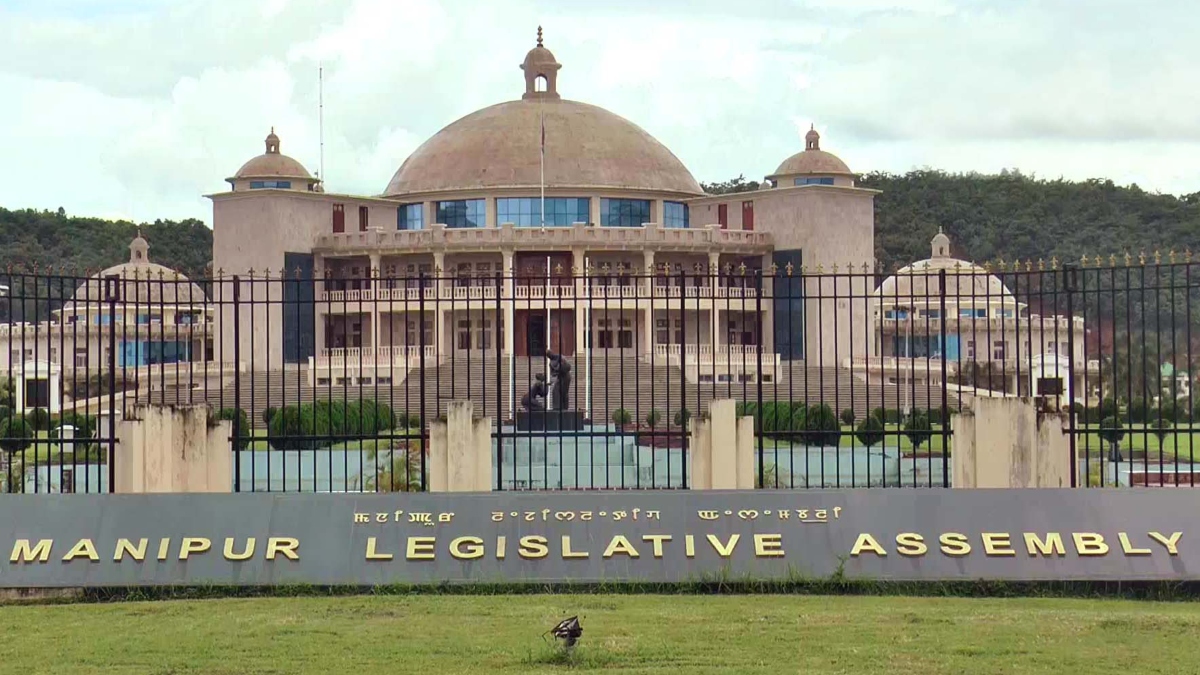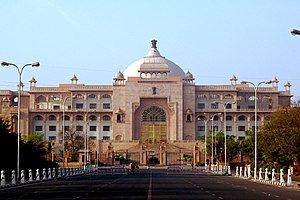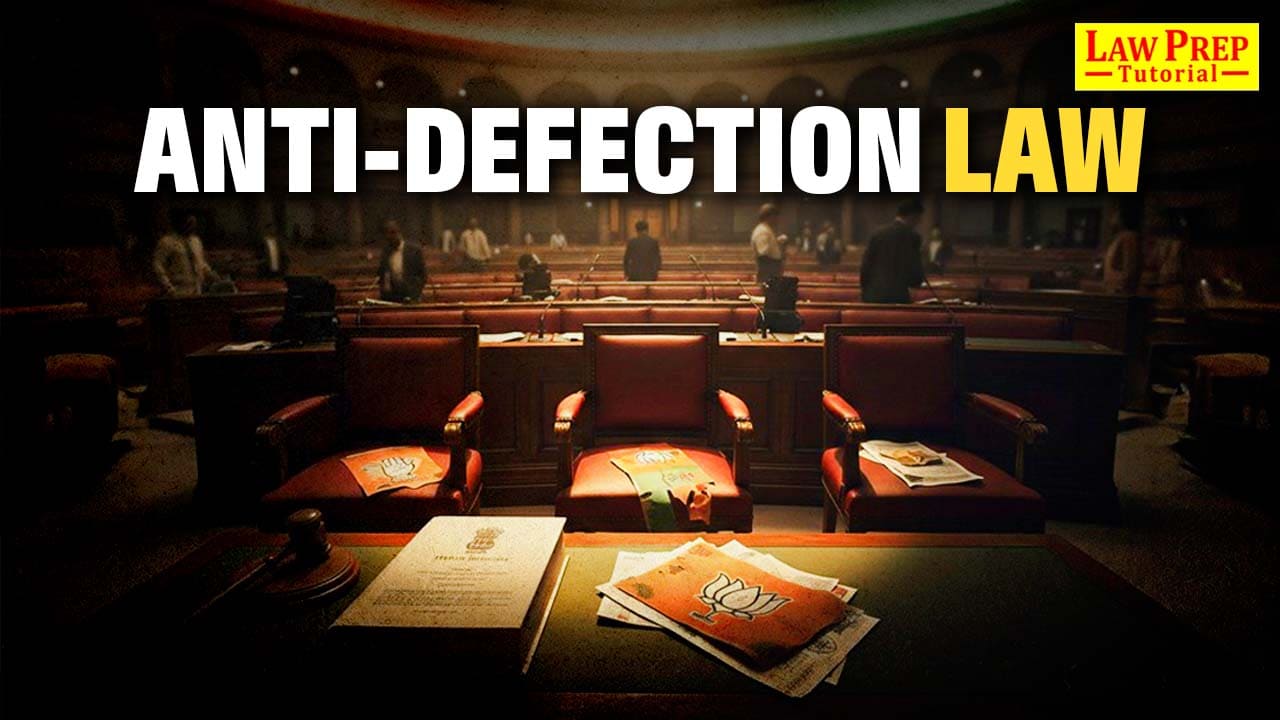“Democracy is the art of thinking independently together.”
– Alexander Meiklejohn.
The Anti-Defection Law in India aims to preserve the integrity of the political system by preventing elected members from switching parties for personal benefits. Introduced through the 52nd Amendment in 1985, this law was added as the Tenth Schedule of the Indian Constitution.
Understanding the meaning of the Anti-Defection Law is important, as it seeks to bring stability to the government and ensure that elected representatives remain loyal to the mandate given by their electorate.
What is Anti-Defection Law?
The Anti-Defection Law is a rule made to keep politicians honest and loyal to the party they belong to. It prevents political defections, where elected representatives switch parties for personal gain. It was added to the Indian Constitution through the 52nd Amendment Act in 1985, forming the Tenth Schedule.
Why Was It Made?
Imagine you are part of a sports team, and right before an important game, some of your team members decide to join the other team because they think they can get more rewards there.
This would make it hard for your team to win and would be unfair. Something similar used to happen in politics. Politicians would switch parties for personal benefits, causing instability in the government.
Key Provisions of Anti-Defection Law
The Anti-Defection Law prevents politicians from switching parties once they are elected.
- If a member of Parliament or a state legislature resigns from the political party they belong to, they can be disqualified from their position.
- If a member votes against their party’s instructions or abstains (does not vote) when the party has directed them to vote, they can be disqualified. This rule ensures that members follow the party’s decisions in important votes.
Exceptions in Anti-Defection Law
There are a few exceptions:
- If a political party merges with another party, and at least two-thirds of its members agree to the merger, those members will not be disqualified. This rule allows for party mergers without penalty.
- The Speaker of the Lok Sabha (House of the People) or the Chairman of the Rajya Sabha (Council of States) will not be disqualified if they resign from their party. This exception ensures that these presiding officers can perform their duties impartially.
Suggested Reading:
- Kapil Sibal: All Details
- Lawyer Ram Jethmalani: All Details
- Top Female Lawyers of India
History of Anti-Defection Law
During the 1960s and 1970s, India faced significant political instability. Elected representatives frequently switched parties, leading to frequent changes in government.
This period saw numerous coalition governments, which were unstable due to the defections of members from one party to another. Such political maneuvering, often for personal gain or political advantage, led to a lack of continuity in governance and frequent disruptions.
These political defections highlighted the need for a law to ensure stability and integrity in the political system. Legislators switching parties undermined the democratic process and betrayed the trust of the electorate, who had voted based on party lines.
To address this issue and promote political stability, the Anti-Defection Law was introduced through the 52nd Amendment in 1985, adding the Tenth Schedule to the Indian Constitution.
Story of Aaya Ram, Gaya Ram
The phrase “Aaya Ram, Gaya Ram” became famous in Indian politics in the late 1960s. It refers to the frequent party switching by politicians, which led to instability in the government. This story played a crucial role in the creation of the Anti-Defection Law in India.
In 1967, a politician named Gaya Lal, who was a member of the Haryana Legislative Assembly, switched parties three times in a single day.
First, he left his party (the Indian National Congress) to join the United Front, then returned to the Congress, and finally switched back to the United Front. This incident highlighted the problem of political defections and the ease with which elected representatives could change parties for personal gain.
The term “Aaya Ram, Gaya Ram” (meaning “Ram came, Ram went”) was coined to describe such frequent and opportunistic party switching. It showed the need for a law to prevent these defections and maintain political stability.
Role of Presiding Officer
The presiding officer, who is either the Speaker of the Lok Sabha (House of the People) or the Chairman of the Rajya Sabha (Council of States), has the authority to decide on petitions for disqualification under the Anti-Defection Law.
When a complaint is made that a member has defected, it is the presiding officer’s responsibility to examine the evidence and make a decision on whether the member should be disqualified. This role is crucial because it ensures that the rules of the Anti-Defection Law are applied and enforced.
Must Know: Constitution Day of India
Controversies and Criticisms Related to Anti-Defection Law
There have been several controversies related to the impartiality and decision-making of the presiding officer:
Bias Allegations:
Critics argue that presiding officers may sometimes act in a biased manner, favoring their own political party. Since the Speaker or Chairman often belongs to a political party, their decisions can be seen as partial, especially in politically sensitive cases.
Delay in Decisions:
There have been instances where decisions on disqualification petitions are delayed. Such delays can cause uncertainty and affect the stability of the government. Critics believe that timely decisions are essential for maintaining the integrity of the law.
Lack of Judicial Review:
Initially, the decisions of the presiding officers were not subject to judicial review, meaning that their decisions could not be challenged in court.
However, the Supreme Court later allowed limited judicial review to ensure fairness, which has somewhat mitigated concerns but still remains a point of contention.
Judicial Review of Anti-Defection Law
When the Anti-Defection Law was first introduced, the decisions made by the presiding officers (the Speaker of the Lok Sabha or the Chairman of the Rajya Sabha) about disqualifying members for defection were not subject to judicial review.
This meant that once the presiding officer made a decision, it couldn’t be challenged or reviewed by the courts. This provision aimed to ensure that decisions on disqualifications were quick and final.
Supreme Court Rulings
In the Kihoto Hollohan case (1992), the Supreme Court of India made a significant ruling on this matter. The court decided that while the presiding officer’s decisions should generally be respected, they could be reviewed by the courts under certain circumstances.
The key points of the ruling were:
- Limited Judicial Review: The Supreme Court ruled that judicial review is allowed but only on specific grounds. Courts can review the presiding officer’s decision if there are issues like violations of natural justice (fairness), malafide intentions (bad faith), or if the decision is constitutionally invalid.
- Fairness and Justice: This ruling ensured that if a presiding officer’s decision appeared biased or unfair, it could be challenged in the courts to protect the rights of the members and maintain the integrity of the law.
Amendments and Changes to Anti-Defection Law
91st Amendment Act, 2003
The 91st Amendment Act, 2003, was introduced to strengthen the Anti-Defection Law and make the political system more stable and efficient.
Key changes:
- Limiting the Number of Ministers: The amendment placed a cap on the size of the cabinet. It stated that the total number of ministers, including the Prime Minister or Chief Minister, should not exceed 15% of the total number of members in the Lok Sabha (House of the People) or the state legislative assembly. This was done to prevent the excessive expansion of the cabinet as a means to reward defectors.
- Preventing Defectors from Becoming Ministers: The amendment ensured that any member of Parliament or a state legislature who is disqualified under the Anti-Defection Law cannot be appointed as a minister. This rule applies for the duration of the remaining term of the legislature. This measure was aimed at discouraging defections by making it clear that defectors would not be rewarded with ministerial positions.
Purpose of the Changes:
- Enhancing Stability: By limiting the size of the cabinet, the amendment aimed to make the government more stable and efficient.
- Discouraging Defections: By preventing disqualified members from becoming ministers, it aimed to reduce the incentives for elected representatives to switch parties.
Must Know: Scope of Law in India
Positive Impacts of Anti-Defection Law on Indian Politics
- Stabilizing Governments: The Anti-Defection Law has helped in reducing political instability by discouraging frequent party switching, which was common in the 1960s and 1970s. This has led to more stable governments, both at the central and state levels.
- Preventing Government Collapse: By disqualifying members who defect, the law has prevented the collapse of many governments that might have otherwise lost their majority due to defections.
- Loyalty to Parties: The law encourages elected representatives to remain loyal to their parties. Members are less likely to switch parties for personal gain, such as monetary incentives or promises of ministerial positions.
- Strengthening Party Discipline: The law has helped in maintaining discipline within political parties, as members are required to follow party directives, especially during crucial votes in the legislature.
Negative Impacts of Anti-Defection Law on Indian Politics
- Limited Freedom for Members: Critics argue that the law stifles healthy dissent within political parties. Members may feel compelled to vote according to the party line, even if they disagree with it, fearing disqualification.
- Suppressing Individual Opinions: The fear of disqualification can suppress individual opinions and debates within parties, reducing the overall democratic spirit and internal discussions.
- Concentration of Power: The law can lead to excessive power in the hands of party leaders, as they can control the actions of party members by threatening disqualification.
- Weakening of Democratic Process: This concentration of power can weaken the democratic process within parties, as members might follow directives without questioning, leading to a lack of accountability and transparency in decision-making.
Examples of Anti-Defection Law Cases
Karnataka Legislative Assembly (2019)
- Case: In 2019, a significant case of the Anti-Defection Law was invoked in the Karnataka Legislative Assembly. Several members of the ruling coalition government resigned, leading to the fall of the government.
- Outcome: The Speaker KR Ramesh Kumar disqualified 17 MLAs under the Anti-Defection Law.
- Implications: The disqualification led to the fall of the coalition government and paved the way for a new government to be formed by the opposition party.
Manipur Legislative Assembly (2020)
- Case: In Manipur, in June 2020, the Speaker Y Khemchand disqualified three MLAs under the Anti-Defection Law. These members had defected from the Congress party to join the ruling BJP coalition.
- Outcome: The disqualification was upheld by the Manipur High Court.
- Implications: This case set a precedent for the enforcement of the Anti-Defection Law in the northeastern states of India. The decision helped stabilize the political scenario in Manipur by affirming the legality of the disqualification of defectors.

Rajasthan Legislative Assembly (2020)
- Case: In Rajasthan, the Anti-Defection Law was invoked during the political crisis in 2020. The Speaker issued notices to 19 Congress MLAs, including the Deputy Chief Minister, for anti-party activities.
- Outcome: The MLAs were not disqualified immediately as the matter went to the courts.
- Implications: The case highlighted the role of the judiciary in the Anti-Defection Law, as the courts intervened to stay the disqualification process.

FAQs About Anti-Defection Law in India
The law was introduced to combat political instability caused by frequent defections of elected representatives. Such defections undermined the mandate given by voters, leading to unstable governments and frequent changes in administration.
The Speaker of the Lok Sabha or the Chairman of the Rajya Sabha, or the respective presiding officers of state legislatures, decide on disqualification cases.
The 91st Amendment Act, 2003, introduced two key changes:
– Limited the size of the cabinet to 15% of the total members of the Lok Sabha or state legislative assembly.
– Disqualified defectors from being appointed as ministers for the remainder of the legislature’s term.
The phrase “Aaya Ram, Gaya Ram” refers to a politician who switched parties three times in one day in 1967. This incident highlighted the problem of political defections and led to the creation of the Anti-Defection Law to curb such practices.
Suggestions include:
– Setting strict deadlines for presiding officers to decide on disqualification cases.
– Establishing independent tribunals to handle disqualification petitions to ensure impartiality.
– Enhancing transparency and accountability in the decision-making process.
The Anti-Defection Law is listed in the Tenth Schedule of the Indian Constitution.
The Anti-Defection Law was introduced through the 52nd Amendment Act, 1985.
The Anti-Defection Law was passed in 1985.
Schedule 10, also known as the Tenth Schedule, contains the provisions of the Anti-Defection Law. It outlines the rules for disqualification of elected members on the grounds of defection.
In a democratic context, defection refers to the act of an elected representative switching allegiance from the party they were elected under to another party. This can undermine the stability of the government and the trust of the electorate.
Read Next:
Upcoming CLAT Exams:











